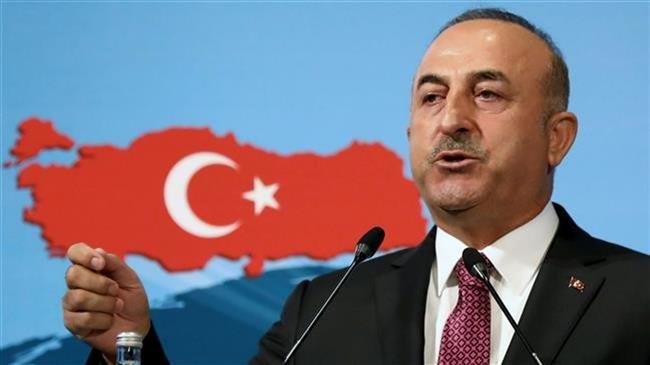Ankara rejects French accusation of Khashoggi game-playing as ‘impudent’
The Turkish government has rejected as “very impudent” France's accusation that President Recep Tayyip Erdogan is playing a “political game” over the brutal killing of dissident Saudi journalist Jamal Khashoggi in the kingdom’s diplomatic mission in Istanbul, raising speculations that France is trying to cover up the crime despite global resolve to hold perpetrators of the act to account.
Turkey’s reaction came on Monday after French Foreign Minister Jean-Yves Le Drian questioned Erdogan’s remarks at the weekend that Ankara had given tapes pertaining to Khashoggi's murder to Saudi Arabia as well as four Western countries – the United States, Germany, Britain and France.
Le Drian said France was not to his knowledge in possession of the recordings and accused Erdogan of lying and not cooperating in the investigation process.
“If the Turkish president has information to give to us, he must give it to us,” Le Drian told France 2 television. “That means he has a political game to play in these circumstances.”
Le Drian's comments were met with a furious response from Ankara which insisted that it had shared evidence related to Khashoggi’s case with Paris and rejected the French foreign minister’s remarks as unacceptable.
"Our intelligence shared information with them on October 24, including the voice recordings," Turkish Foreign Minister Mevlut Cavusoglu said. "It is very impudent for them to accuse our president of playing political games."
"I wouldn't be surprised if soon France chooses to deny this murder, even though Saudi Arabia already confessed," Cavusoglu added. "What's behind the remarks of the French foreign minister? I wonder if they are trying to cover up the murder."
The dispute comes as British Foreign Secretary Jeremy Hunt paid an official visit to Saudi Arabia and called for the kingdom’s cooperation with a “credible” investigation into the killing of the dissident journalist.
Saudi Arabia is facing global criticism and potential sanctions over Khashoggi's killing inside the Saudi consulate in the Turkish city of Istanbul on October 2.
Khashoggi, a prominent commentator on Saudi affairs who wrote for the Washington Post’s Global Opinions section, had lived in self-imposed exile in the US since September 2017, when he left Saudi Arabia over fears of the Riyadh regime’s crackdown on critical voices.
The 60-year-old was seeking to secure documentation for his forthcoming marriage when he entered the Saudi consulate, but never came out despite Riyadh’s initial claim that he exited the mission less than an hour after completing his paperwork.
The Saudi kingdom, after denying the murder for several days, finally admitted that Khashoggi had been killed in the consulate during an interrogation by rogue operatives that had gone wrong after diplomatic pressure grew tremendously on Riyadh to give an account on the mysterious fate of its national.
However, Saudi Arabia said that it did not know the whereabouts of Khashoggi’s body, which is widely believed to have been dismembered.
The Turkish president says the assassination was ordered at the "highest levels" of the Saudi government.
Turkish media have pointed the finger at the powerful Crown Prince Mohammed bin Salman, with analysts saying the Turkish government is keen to have the ambitious heir sidelined from the nexus of power in the Arab kingdom.
However, the Turkish president has yet to directly accuse the young crown prince, who condemned the murder as “a repulsive incident” three weeks after the crime.
‘Ethnic cleansing’: Hamas blasts Israeli attacks on Gaza hospital amid intl. silence
Saudi delegation meets HTS leader at presidential palace in Damascus
Relentless Israeli ceasefire violations justify need for self-defense: Lebanese MP
Tel Aviv tells Damascus Israeli forces will remain in occupied territory: Report
Dec. 22: ‘Axis of Resistance’ operations against Israeli occupation
‘Abhorrent’: Oxfam says only 12 trucks delivered aid in North Gaza since Oct.
VIDEO | Leader receives religious eulogists on Hazrat Fatima birth anniv.
Pope Francis slams Israel’s ‘machine-gunning’ of Gaza children












 This makes it easy to access the Press TV website
This makes it easy to access the Press TV website